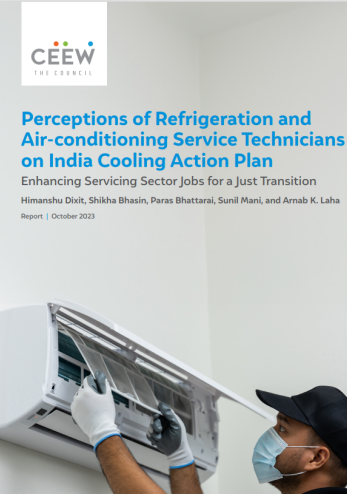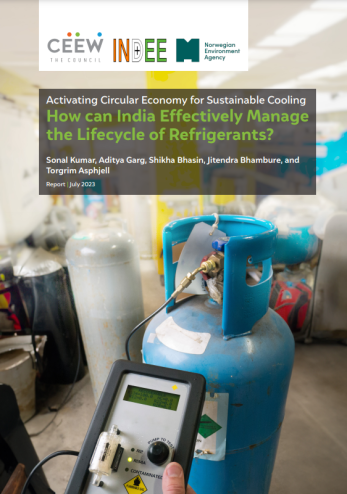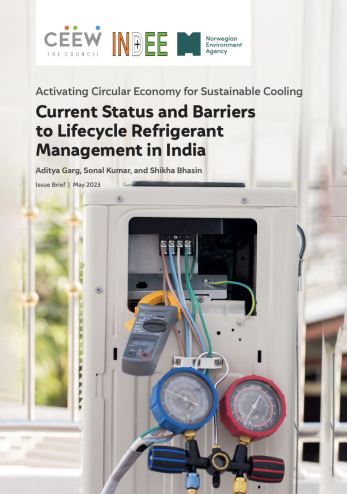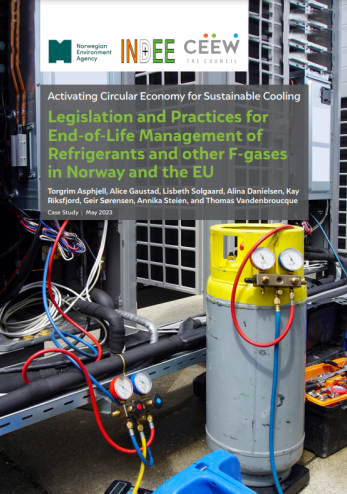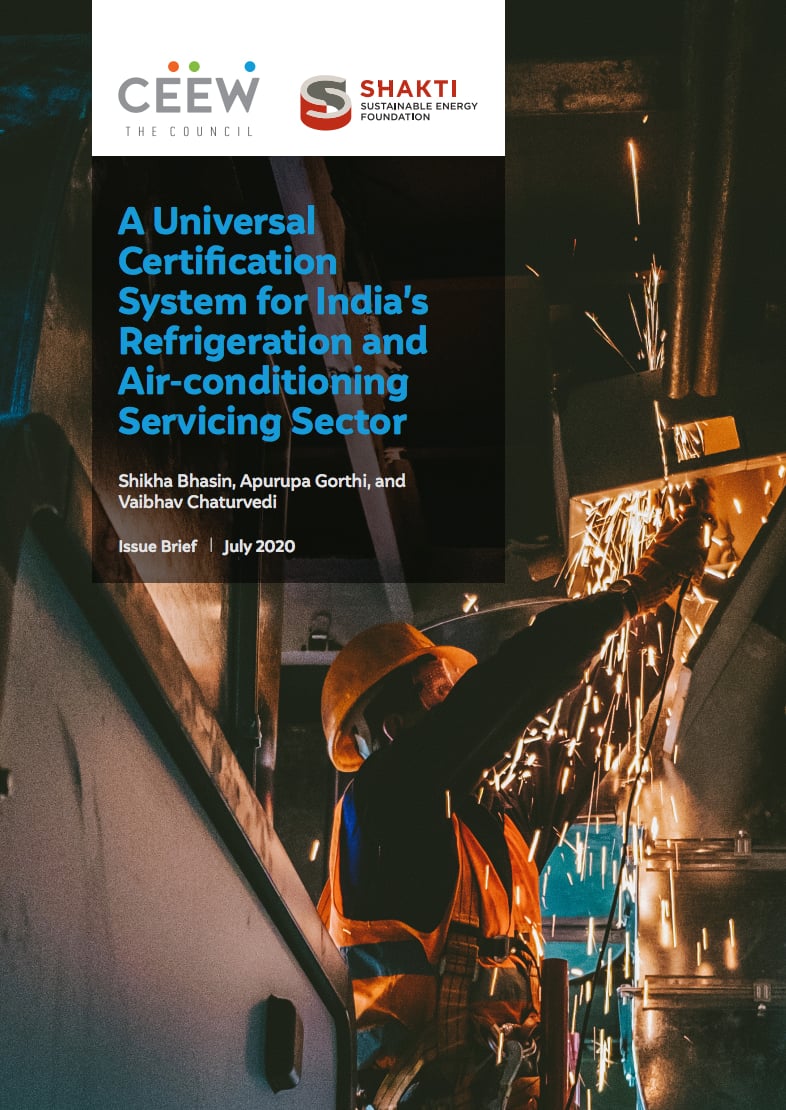Issue Brief
A Universal Certification System for India’s refrigeration and Air-Conditioning Servicing Sector
Shikha Bhasin, Apurupa Gorthi, Vaibhav Chaturvedi
July 2020 | Sustainable Cooling
Suggested citation: Bhasin, Shikha, Apurupa Gorthi, and Vaibhav Chaturvedi. 2020. A Universal Certification System for India’s Refrigeration and Air-conditioning Servicing Sector. New Delhi: Council on Energy, Environment and Water.
Overview
This issue brief details the framework that can enable India to implement a certification system for the refrigeration and air-conditioning (RAC) servicing sector. The India Cooling Action Plan (ICAP) has identified a skill certification system and the standardisation of training curricula as two immediate steps to be taken for developing the servicing sector. The brief highlights the institutional setup, with public and private actors, needed to effectively manage the certification system. The brief also puts forward the core principles, including equity, improved job opportunities and growth, and easier access to social welfare programmes, that the design and functionality of this system must reflect.

Key highlights
- Establishing a certification system will allow licensed technicians to benefit from job enhancements and will optimise the need for training to benefit servicing quality and effectiveness.
- Servicing practices hold the key to energy efficiency as well as environment-friendly handling and maintenance of heating, ventilation and air-conditioning (HVAC) units.
- As the refrigerant transition takes hold of industry dynamics in India, the servicing sector must be ready to identify and work with a suite of gases. The technicians should be able to ensure safe handling and proper leak prevention so as to minimise emissions directly resulting from refrigerant leakage and venting as well as ensure safety and on-job security.
- Establishing a certification system would enable not just a regulatory overview of servicing sector technicians but also a way to gradually assimilate these technicians into the formal economy.
- A universal certification system will also help to regulate and address the increase in service sector jobs.
- The India Cooling Action Plan aims to train and certify 100,000 servicing sector technicians by 2022-23, and achieve universal and mandatory certification of technicians over the next two decades.
- Electronics Sector Skills Council of India (ESSCI) would remain the nodal agency responsible for final certification of technicians under the aegis of the Ministry of Skill Development and Entrepreneurship (MSDE) in the Government of India.
- Each training or testing centre with required infrastructure, to accommodate 30 technicians at a time, costs approximately INR 3.5 lakhs, and the ESSCI will establish and accredit 400 such centres.
- The human resource cost for skill programmes, according to ESSCI, that includes trainers, certification personnel, and evaluators amounts to approximately INR 116. 70/hour/ technician trained and certified over five days.
Key recommendations
- Design India’s certification system based on the following principles:
- Equitable: Ensure ease of access to the training and qualification packs for which the certification system will test.
- Independent: Training and certification should remain independent of each other, institutionally at least, to ensure validity.
- Safe and environmentally sound: Servicing best practices should ensure the safety of technicians and those affected by the servicing practices. Incorporate environmental best practices as part of every technicians servicing provision.
- Improved livelihoods: Ensure that the certification can play role in formalising and recognising technicians who work in this sector.
- Improved access to welfare: Design the system to act as a vanguard for easier access to social welfare programs for which the technicians may be eligible.
- Design various categories of certification based on theoretical and practical tests.
- Create a roster system for re-evaluation consistent with market changes in technologies every five years, and create a livelihood upgrade system.
- Announce a long-term target of mandating certification for 2030 with sectoral target specified in between.
- Industries should work closely to develop the curricula that the ESSCI tests on, and provide third-party monitoring to ensure that certification regulations are implemented.
- There should be no initial barrier to taking certification tests.
The human resource cost for skill programmes that includes trainers, certification personnel, and evaluators amounts to approximately INR 116. 70/hour/ technician trained and certified over five days.





